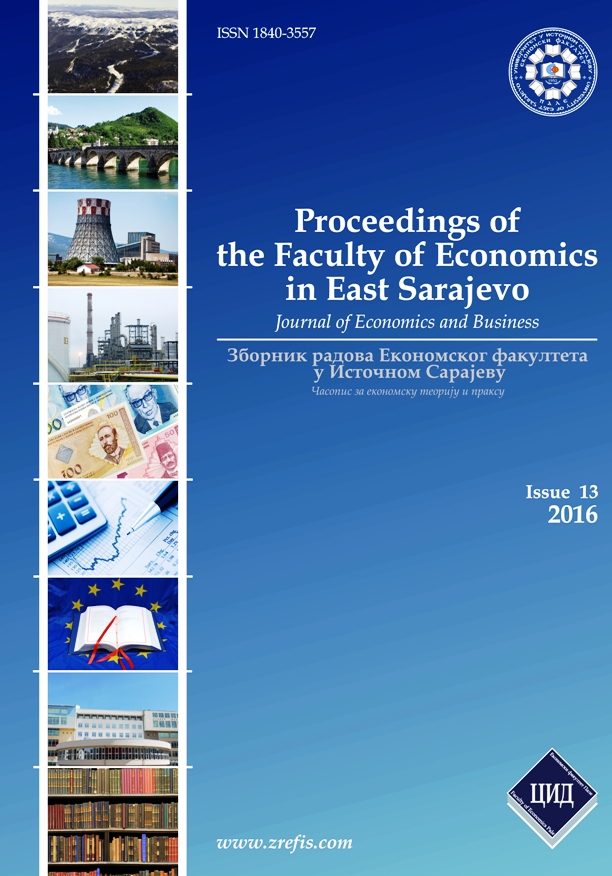INFLUENCE OF THE CEFTA 2006 AGREEMENT ON BIH ECONOMY
DOI:
https://doi.org/10.7251/ZREFIS1613041KAbstract
For the countries like Bosnia and Herzegovina, which are dependent of foreign trade because of their size and open economy, involvement in the process of regional cooperation and integration is a condition without which the further progress is not possible. Commitment of Bosnia and Herzegovina is to be a part of the Europan Union. A regional associating of countries in the region and making of free trade area such as CEFTA 2006, is creation of prerequisites for accomplishment of criteria which are imperative to accession of one country to the Europan Union. This agreement which establishes new and modern trade rules and defines questions of liberalization of services, investments, public procurement and intellectual properties, is meant to ensure for the signatory country to make better results in the foreign trade and attract direct foreign investment through its consistent implementation. The capibility of a country to maximize benefits which are the result of application of this agreement, represents a direct indicator of competence of the country, member of CEFTA, to participate in competition on the market of European Union.
In order to confirm the main hypothesis that Bosnia and Herzegovina did not have huge benefits of CEFTA 2006 Agreement, the following scientific methods are used: analysis and synthesis, comparative method, classification method, description, stastistical, historic method, specialization, approving methods, deductive and inductive, compilation, observing, abstraction and concretization. The research goal is to determine and present the real result which comes out of this free trade zone and implications of exit of Croatia from CEFTA Agreement on economy of Bosnia and Herzegovina.

